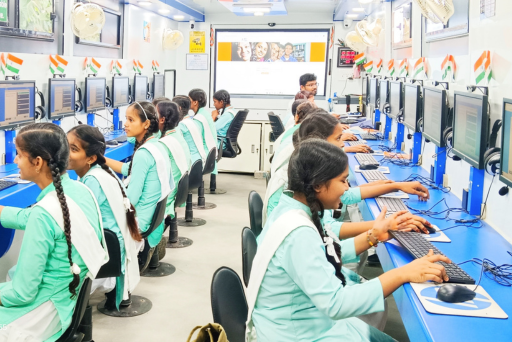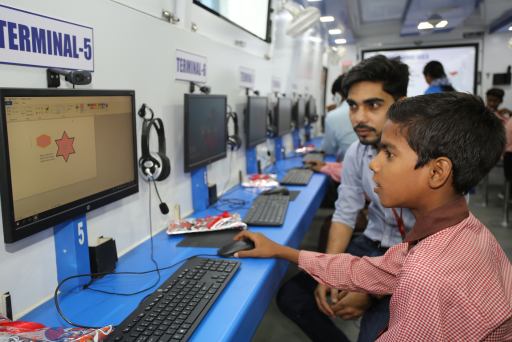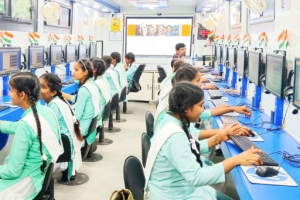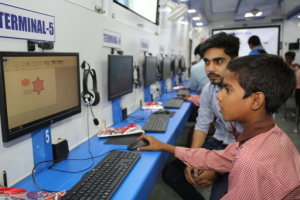Digital literacy has become essential in today’s fast-paced, constantly changing digital world. Although there is a lot of focus on educating the younger generation on digital skills, it is also important to give the elderly access to these opportunities. Acknowledging this need, NIIT Foundation – a pioneer in digital education and vocational training—is taking major steps to close the digital disparity for the ageing population.
Digital literacy allows the elderly to stay connected with family and friends through social media, video calls, and instant messaging, crucial for combating loneliness and fostering a sense of belonging. With the internet being a vast repository of information, digital literacy enables the elderly to access a wealth of information, from news updates to health advice and entertainment, at their fingertips. Moreover, with online banking and digital payment systems, the elderly can manage their finances more efficiently and securely, reducing their reliance on physical bank visits.
Recognizing the importance of digital inclusion, NIIT Foundation has launched several initiatives to promote digital literacy among senior citizens. These projects reach out to a wide range of beneficiaries from the age group of 6 to 60 years old. In FY23, NIIT Foundation enrolled 1.65 million and certified 1.38 million beneficiaries in various programs. This year, the organisation’s efforts have extended to positively impact the LGBTQIA+ community, people with special needs, and senior citizens.
NIIT Foundation’s programs for seniors focus on providing tailored digital training that addresses their specific needs and challenges. These programs include basic computer skills, internet usage, online safety, and the use of various digital tools and applications. By creating a supportive and inclusive learning environment, the NIIT Foundation ensures that seniors can learn at their own pace and gain the confidence to use digital technologies effectively.
In this regard, Sheela Jain, a 65-year-old widow from Bhopal, is an excellent example of the power of knowledge – irrespective of age. Despite limited education, she has supported herself and her three children through her tailoring skills – with her children all settled today. Eager to expand her skills and knowledge, Sheela enrolled in a digital awareness program offered by the Indus Tower-NIIT Foundation. Embracing the one-month long courses specifically designed to empower women, Sheela’s enthusiasm also inspired her peers and friends to upgrade their digital skills. From utilising drawing and painting tools to foster creativity to enhancing her typing skills and navigating the internet and the social media realm, Sheela quickly adapted to the digital world; with video calling becoming one of her most cherished skills – allowing her to connect with her children and grandchildren. The program significantly reduced her isolation and substantially enhanced her quality of life – connecting her to her family and old friends on Facebook while also confidently protecting herself from cyberthreats. Sheela’s journey from digital novice to confident user demonstrates the transformative power of technology education for seniors.
Digital literacy is a pivotal tool that empowers seniors to continue lifelong learning and stay mentally active. Access to educational resources, online courses, and recreational activities keeps their minds engaged and promotes cognitive health. Furthermore, being digitally literate boosts their confidence and independence, allowing them to navigate the modern world with ease. Through its dedicated initiatives, the NIIT Foundation is playing a pivotal role in bridging the digital divide and empowering the elderly to lead more fulfilling lives.
















